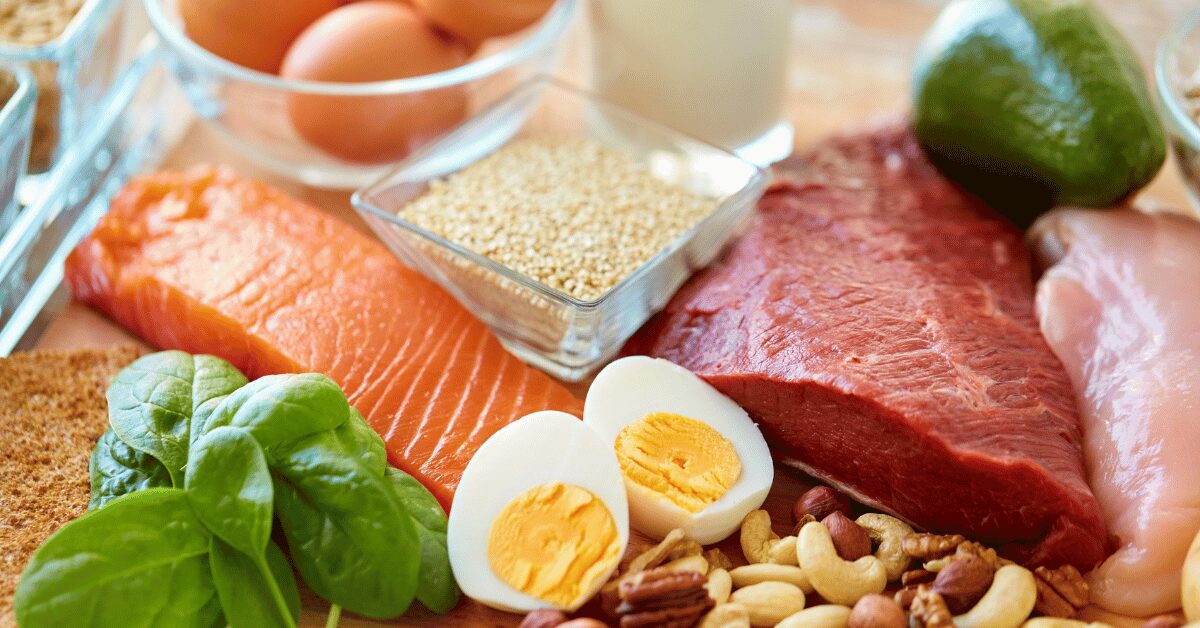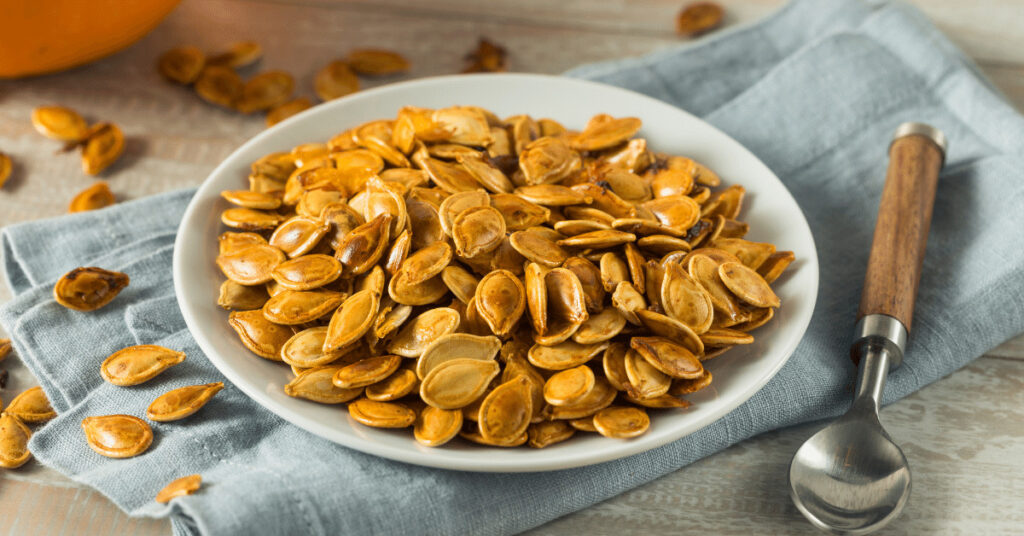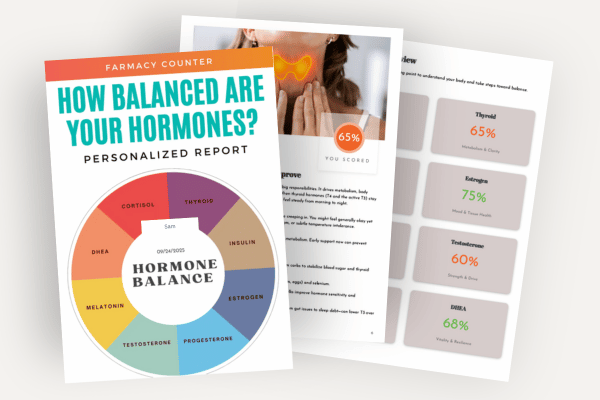
Most of us think of protein as the thing that builds muscle or keeps us full a little longer. And that’s true. But what often gets missed is how much your hormones depend on it, too.
In functional medicine, protein isn’t just about strength — it’s about stability. Protein provides the amino acids your body uses to build and regulate hormones, support detoxification, balance blood sugar, and steady your stress response.
When protein intake is low or inconsistent, you might feel it as:
- Midday crashes or sugar cravings
- Irritability or anxiety
- Poor sleep or feeling “wired and tired”
- Slower recovery or lower resilience to stress
If that sounds familiar, it might be worth looking not only at how much protein you’re getting but also where it’s coming from. Some sources are easier for your body to recognize, absorb, and use efficiently — and those are the ones that most strongly support hormonal stability.
Here are some of the cleanest, most hormone-supportive sources of protein to keep your body — and your hormones — steady.
Wild-Caught Fish and Pasture-Raised Eggs
These are clean, nutrient-dense sources of protein that also supply healthy fats (like omega-3s and phospholipids) and key nutrients such as choline, selenium, and vitamin D — all essential for hormone synthesis and liver detoxification.
Why it matters: Choline supports methylation, a process critical for estrogen metabolism and nervous system balance. Selenium helps thyroid hormone activation.
Try this: Aim for 2–3 servings of wild-caught salmon, sardines, or mackerel weekly, and add pasture-raised eggs to breakfast or salads.
Recipes From Our Kitchen

Grass-Fed Meats and Organic Poultry
Grass-fed and pasture-raised meats provide complete protein plus anti-inflammatory fats (like conjugated linoleic acid and omega-3s). They also contain iron, zinc, and B vitamins — nutrients that are vital for thyroid and adrenal function.
Unlike conventionally raised meat, these options don’t add extra hormones or chemical residues for your liver to process, which helps reduce overall metabolic stress.
Why it matters: Protein-rich meals stabilize blood sugar, reducing cortisol spikes and promoting more even energy and mood.
Try this: Choose grass-fed beef, lamb, bison, or organic chicken and turkey. Pair with fiber-rich veggies for balanced meals.
Recipes From Our Kitchen

Plant-Based Protein Options
If you lean more plant-based, you can still get excellent protein sources that support hormonal health — without relying on soy.
Try including:
- Lentils, chickpeas, and black beans – high in fiber and resistant starch, supporting gut microbiome balance (essential for estrogen metabolism).
- Quinoa and amaranth – technically seeds, these are complete proteins and naturally gluten-free.
- Hemp hearts, chia seeds, and pumpkin seeds – provide both protein and hormone-friendly minerals like magnesium and zinc.
- Green peas and pea protein powder – great for smoothies if you need quick, clean support without additives.
Why it matters: A healthy gut helps metabolize and excrete excess hormones, reducing estrogen dominance and supporting balanced progesterone levels.
Recipes From Our Kitchen

Pumpkin Seeds and Hemp Hearts
These small but mighty foods are among the most mineral-rich plant proteins available. They deliver zinc and magnesium — two nutrients that play key roles in regulating the stress response and reproductive hormones.
- Zinc supports ovulation and testosterone balance.
- Magnesium helps calm the nervous system, lower cortisol, and support sleep.
Try this: Sprinkle hemp hearts or pumpkin seeds on oats, salads, or coconut yogurt, or blend into smoothies for a blood-sugar-steadying snack.
Recipes From Our Kitchen

A Note on Protein Powders and Bars
Protein powders can be helpful when life gets busy, but choose wisely. Many commercial products are loaded with added sugars, gums, and synthetic sweeteners that can interfere with blood sugar and hormone regulation.
Look for clean formulations with minimal ingredients — ideally organic, third-party tested, and made from collagen peptides or pea protein. Use them as a supplement to whole food, not a replacement.
Functional Medicine Lens: Why Protein Matters for Hormones
From a functional medicine perspective, protein plays a role in nearly every hormonal pathway:
- Amino acids are the building blocks for thyroid hormones, neurotransmitters, and adrenal hormones.
- Adequate protein supports liver detoxification, helping clear used estrogen and other hormones efficiently.
- Protein stabilizes blood sugar, which directly affects cortisol and insulin balance.
- Consistent intake helps prevent catabolism, the muscle breakdown that can occur with stress or under-eating — a key trigger for hormonal dysregulation.
When you nourish your body with the right proteins, you give it the foundation it needs to create steady energy, balanced moods, and healthy cycles — from the inside out.
Bringing It All Together
Whole-food protein sources offer a kind of grounded support that your hormones recognize. They don’t just build muscle — they build resilience.
Start with small, consistent steps:
- Include protein at every meal (aim for 20–30g per meal for most adults).
- Rotate your sources — mix fish, eggs, meats, and plant proteins through the week.
- Pair protein with fiber and healthy fats to keep blood sugar stable.
When your meals are balanced this way, your hormones get the message: safe, steady, supported.
Ready to See Where Your Hormones Stand?
If you’re wondering how your own hormone rhythms are functioning — and whether stress, sleep loss, or lifestyle shifts might be throwing things off — here’s an easy next step.
👉 Take the “How Balanced Are Your Hormones?” Quiz here »
You’ll receive a free, personalized 13-page hormone report that explores eight key hormone systems through a functional medicine lens, including:
✅ A snapshot of your current hormone balance
✅ Insights into your energy, mood, sleep, metabolism, and reproductive health
✅ Functional medicine–based guidance to help you begin rebalancing naturally
Think of it as your roadmap back to alignment — helping you understand your body’s signals, restore hormonal harmony, and feel more clear, steady, and strong from the inside out.

How Balanced are Your Hormones?
Take our 3-minute quiz to discover your unique hormone balance—and get a personalized 13-page report with insights and actionable steps to support energy, mood, sleep, metabolism, and reproductive health.






